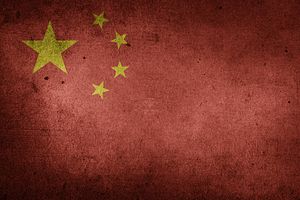On the sidelines of the UN General Assembly, U.S. Deputy Secretary of State John Sullivan hosted a panel condemning China’s human rights abuses in Xinjiang, the northwest province where China has imprisoned at least a million Muslim Uyghurs in what the Pentagon calls “concentration camps.” The panel complemented the United States’ sideline event on religious freedom that President Donald Trump and Vice President Mike Pence both attended.
While condemning China’s abuses of religious minorities is vital work, these words ring hollow from an administration that disregards the basic dignity of Muslims at home and abroad. Xinjiang has been reduced to just a tool in the administration’s box that it wields in neither a subtle nor productive way. The United States only takes this tool out when it wants to goad China.
The Trump administration’s anti-Muslim policy stance is well documented and it weakens the United States’ position as a negotiator on China. China is counting on U.S. insincerity in rhetoric and policy to advance its Xinjiang policies with impunity.
The administration’s Islamophobia ranges beyond personal remarks to staff selection and policy proposals. At times, the administration sounds like the Chinese government that it criticizes. Michael Flynn, a former national security advisor, called Islam a “cancer” that needed to be “excised.” This sounds eerily like a Communist Youth League speech that said Xinjiang has an “ideological disease” and needs a cure.
Trump largely fails to take any policy action to address the violence against Muslims at home and around the world. Xinjiang is no exception. A slew of sanctions rolled out earlier this year against groups that persecute religious minorities included measures against Myanmar military leaders, which shows some progress. But defending global religious freedom requires more than half-measures. The administration’s words on Xinjiang remain toothless.
Trump, Pence, and Secretary of State Mike Pompeo only bring up Xinjiang when trade talks stall. American sanctions on Chinese officials associated with camps have been delayed indefinitely. American companies profiting from the detention program are not held to account. The declaration and plan of action following Pompeo’s 2018 Ministerial to Advance Religious Freedom did not even mention China. The 2019 conference only yielded a short official statement on China’s broad offenses of religious persecution. (The broader conference included a segment focused on Xinjiang, but it was Democratic Speaker of the House Nancy Pelosi who had sharp words for China, not the executive branch).
The administration’s newly slashed refugee resettlement program has not been amended to include Uyghur refugees. The United States has not admitted a refugee that speaks the Uyghur language since 2013. The Trump administration has employed mental gymnastics to declare itself a champion of religious freedom while barring the very people facing persecution.
Religious freedom will always be second string to the deal that Trump covets with China.
China is well aware of this. Even after the sideline events at the UN, China will undoubtedly continue undeterred in its detention program. Why? Because Trump has crippled the United States’ ability to advocate for Muslim human rights in China by neglecting them everywhere else in the world. Their instincts are confirmed by the lack of concrete policy put forth by the administration to address the crisis.
Paired with a condemnation of globalism on the floor of the UN, U.S. credibility to rally the world to action has been demolished. When negotiating anything in the international arena, credibility is everything.
China is capitalizing on global apathy toward anti-Muslim bigotry led by the president of the United States. It runs a detention program that has imprisoned and tortured over 1 million Uyghurs and plans to expand its campaign to the rest of China. If the Trump administration doesn’t get serious about defending religious freedom soon, China might just get away with it.
Lucille Greer is a Schwarzman Fellow at the Wilson Center.

































